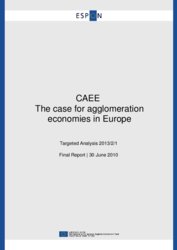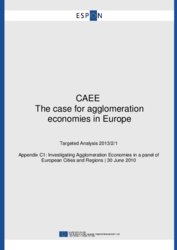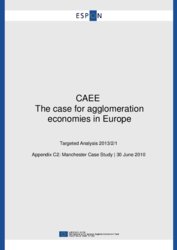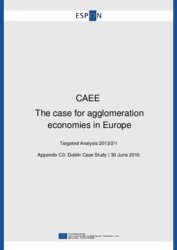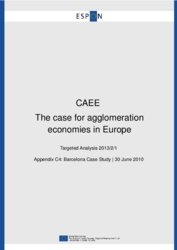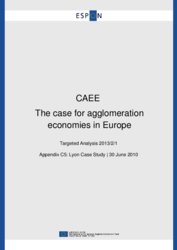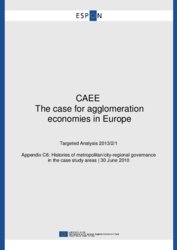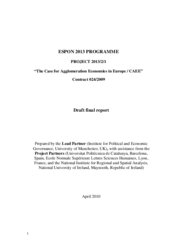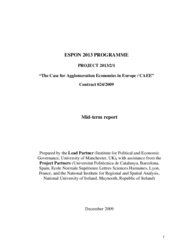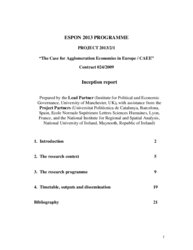CAEE - The Case for Agglomeration Economies in Europe
Thematic scope
European cities are centres of finance and commerce; centres of culture, knowledge and creativity; centres of communication, power and influence as well as visitor and tourist centres. The concentration of people and business activity has many benefits that make locating in the city worthwhile. Agglomeration is a dynamic process, cities are not static areas. Indeed, urban size and variation are precisely what makes change possible.
This project is an economically focussed study looking at the process of agglomeration within city regions across Europe, i.e. areas which are typically NUTS2 regions and which contain a primary central city. The analysis will contribute to creating a better understanding of and to suggesting optimum scales for urban form and agglomeration, taking into account both the economic costs and benefits of large urban agglomerations.
Please read more about the main areas of analysis and main results envisaged.
This project is an economically focussed study looking at the process of agglomeration within city regions across Europe, i.e. areas which are typically NUTS2 regions and which contain a primary central city. The analysis will contribute to creating a better understanding of and to suggesting optimum scales for urban form and agglomeration, taking into account both the economic costs and benefits of large urban agglomerations.
Please read more about the main areas of analysis and main results envisaged.
Stakeholders
- Manchester Enterprises Ltd. (Lead Stakeholder)
- Barcelona Provincial Council, Territorial Observatory of the Studies Department
- Dublin Regional Authority, Regional Planning Guidelines, Dublin and Mid-East Regional Authorities
- Greater Lyon, Department for International Relations
Lead Partner
University of Manchester (United Kingdom).
Detailed information on the contracted project team can be found under Transnational Project Groups.
Budget : € 200 000,00
Project’s lifetime: March 2009 – June 2010
Delivery of Reports
Inception Report: 8 June 2009
Mid-term Report: 7 December 2009
Draft Final Report: 30 April 2010
Final Report: 30 June 2010
Publishing
Reports will be published once they are approved by the ESPON Monitoring Committee
More information
Please contact the Project Expert at the ESPON Coordination Unit:
Michaela GENSHEIMER, e-mail: michaela.gensheimer@espon.eu
Main areas of analysis
- Clarification of how agglomeration effects can be measured, using the data available, and application of a common measurement methodology across each of the case study areas.
- Derivation of some measures of city-regional autonomy to compare governance arrangements in and for the case study areas, and determination of the extent to which city-regional policy choices have affected and can possibly affect the nature and pattern of agglomeration economies.
- Provision of an understanding of the sources of agglomeration within the four study areas, and assessment of whether there is a policy role for influencing agglomeration economies, and if so for whom.
- Comparative analysis of agglomeration, including both potential economies and diseconomies, across the case study areas.
- Proposition of potential strategic policy options to encourage ‘hot spot’/agglomeration growth to spill over to the wider regional economy.
- Assessment of the extent to which governance arrangements in and for the target areas have enabled (or constrained) city-regional development in the past and are likely to do so in the future.
Main results envisaged
- An understanding of the process of agglomeration within the context of the MEGAs (European city regions), outlining whether there is a policy role for influencing agglomeration economies.
- A comparative analysis of agglomeration economies between European city regions, outlining the competitive positioning of the partner city regions and their unique proposition to future business and investment.
- An identification of a range of relevant policy options to ensure that ‘hot-spot’ / agglomeration growth spills over to benefit both the cities themselves as well as their wider region.
- An in-depth assessment of European city region (MEGAs) economies, to improve and support the economic understanding of decision-makers in the partner city regions, including a European/global perspective on potential development opportunities.
